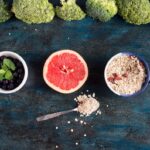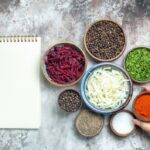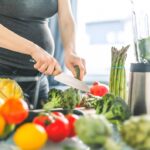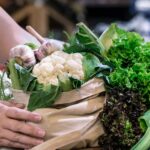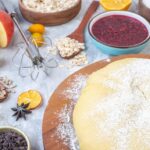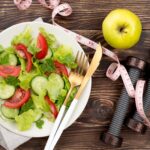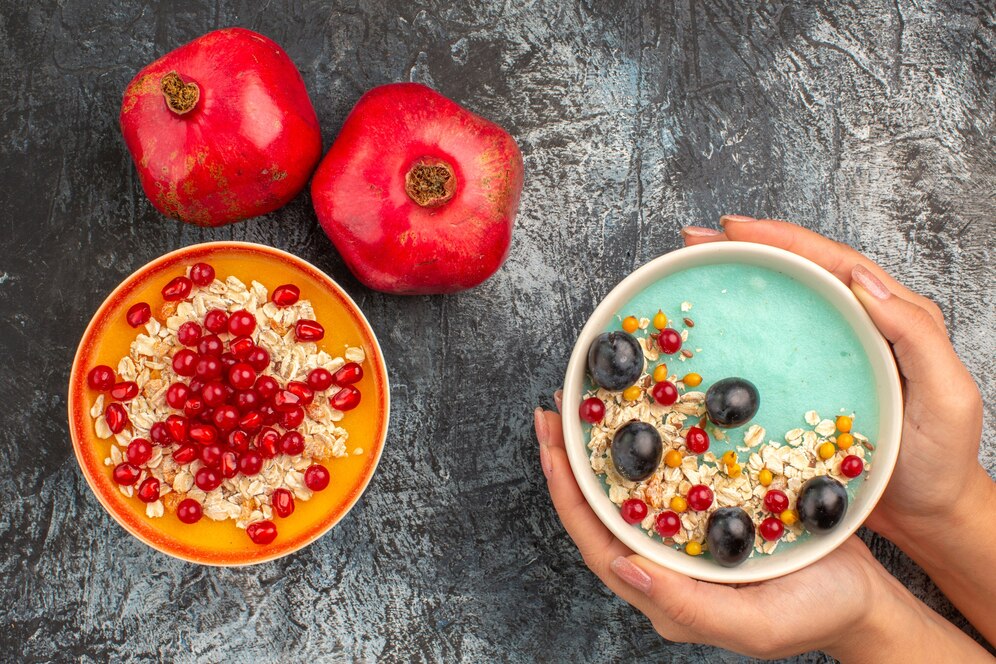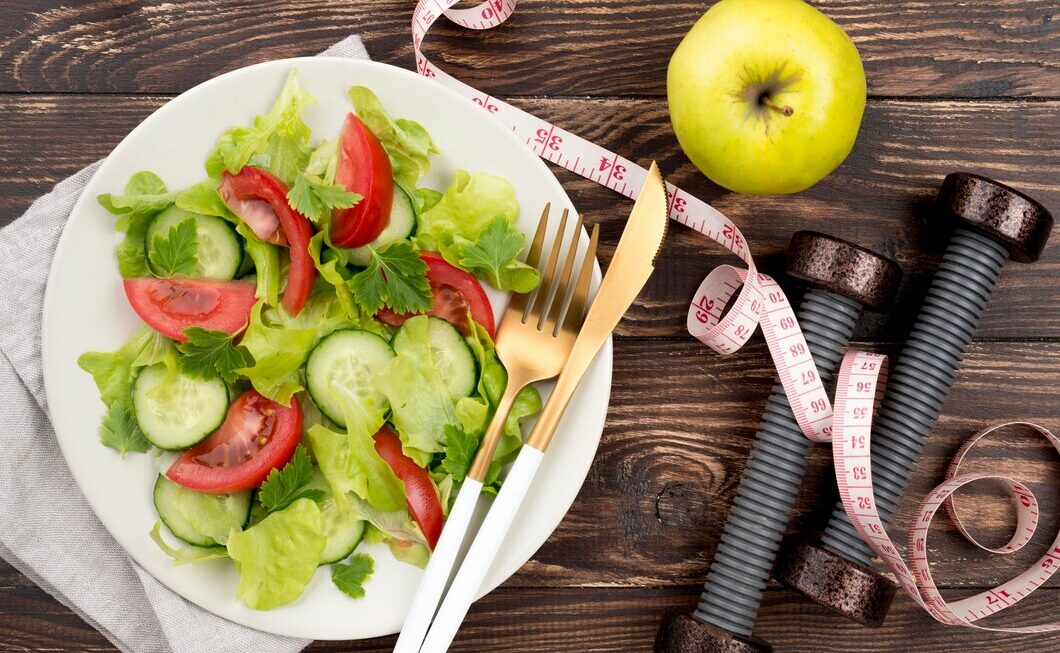For anyone pushing their physical limits, whether you’re a competitive athlete or a dedicated fitness enthusiast, training is just one part of the equation. True progress happens during recovery. This crucial period is when your body repairs damaged tissues, replenishes energy stores, and adapts to become stronger and more resilient. And the absolute cornerstone of effective recovery? Nutrition.
The great news is that a well-planned vegan diet can provide everything your body needs to bounce back efficiently, potentially even offering advantages through its abundance of anti-inflammatory compounds. Forget the myths – you can absolutely thrive and recover optimally on plants. This guide dives into the science of recovery and provides practical healthy vegan meal plan strategies, keeping in mind factors like the Indian climate.
The Science of Recovery: What Your Vegan Body Needs Post-Workout
Intense exercise puts stress on the body. Post-workout nutrition aims to reverse this stress and kickstart the repair and adaptation process.
- Nutrition Nerd Out: After you finish training, your muscle cells are highly receptive to nutrients. The main goals of recovery nutrition are to stimulate Muscle Protein Synthesis (MPS) – the process of repairing and building muscle tissue – restore muscle glycogen (your primary fuel source), and manage exercise-induced inflammation and oxidative stress.
- Muscle Repair & Synthesis: Exercise causes microscopic tears in muscle fibers. Repairing these requires Protein, specifically the essential amino acids that are the building blocks of muscle. Leucine is a key amino acid known to strongly trigger MPS.
- Glycogen Replenishment: Your muscles store carbohydrates as glycogen. Intense or prolonged exercise depletes these stores. Consuming adequate Carbohydrates post-exercise is vital for refilling these fuel tanks, ensuring you’re ready for your next session.
- Reducing Inflammation & Oxidative Stress: While some inflammation is a normal part of the adaptation process, excessive or chronic inflammation can hinder recovery. Plant-based diets are naturally rich in Antioxidants and phytochemicals that help combat oxidative stress and modulate inflammation.
- Rehydration & Electrolyte Balance: You lose Fluids and critical minerals (Electrolytes like sodium, potassium, magnesium, calcium) through sweat. Replacing these is essential for proper hydration, nerve function, and muscle contraction.
Vegan Powerhouses: Fueling Recovery with Plants
Nature provides an incredible toolkit for vegan recovery!
- Plant Protein Power: Meet your muscle repair needs with:
- Sources: Lentils (dal – masoor, moong, toor), chickpeas (chana), kidney beans (rajma), black-eyed peas (lobia), tofu, tempeh, edamame, seitan (if not gluten-sensitive), quinoa, amaranth (rajgira), nutritional yeast, pumpkin seeds, hemp seeds, chia seeds, almonds, walnuts.
- Leucine Focus: To effectively stimulate muscle repair, include good sources of leucine such as soy products (tofu, tempeh, edamame, fortified soy milk), lentils, pumpkin seeds, and peanuts. Combining various plant protein sources throughout the day ensures you get all essential amino acids.
- Vegan Protein Powders: Convenient options like pea, soy, brown rice, or blended plant proteins can be very useful for a quick post-workout boost.
- Quality Carbohydrates: Replenish energy stores with:
- Sources: Oats, brown rice, quinoa, whole wheat roti/chapati, bajra/jowar/ragi roti, potatoes, sweet potatoes (shakarkandi), corn (makai), bananas, mangoes (perfectly in season in Vadodara in May!), berries, apples, dates (khajur). Prioritize whole or minimally processed sources for sustained energy and fiber.
- Antioxidant All-Stars: Fight inflammation with colorful plants:
- Sources: Berries (strawberries, blueberries, raspberries – frozen are great too!), dark leafy greens (spinach/palak, fenugreek/methi, kale), beetroot, turmeric (haldi), ginger (adrak), bell peppers (capsicum), tomatoes, pomegranate (anar), amla (Indian gooseberry). Aim to “eat the rainbow”!
- Electrolyte Replenishers: Restore balance with:
- Sources: Bananas, potatoes, sweet potatoes, spinach (potassium); Nuts, seeds, legumes (magnesium); Fortified plant milks, tofu (set with calcium sulfate), sesame seeds (til), ragi (calcium); Adding common salt (sodium) to meals; Tender coconut water (nariyal pani – excellent source of potassium, naturally available).
Nutrient Timing: The Recovery Window & Beyond
When you eat can influence recovery, but consistency is key.
- Fueling Strategy: While the idea of a strict 30-minute “anabolic window” is debated, consuming nutrients relatively soon after finishing your workout is generally beneficial for kickstarting recovery processes.
- The Golden Hours (Approx. 30-90 Mins Post-Workout): Aim to consume a snack or meal containing both Carbohydrates and Protein within this timeframe. A ratio of roughly 3:1 or 4:1 (Carbs:Protein) is often suggested, particularly after long endurance workouts, to prioritize glycogen replenishment while providing protein for repair.
- Consistent Intake Matters: Don’t overly stress about hitting the window perfectly. Your total daily intake of calories, protein, carbohydrates, and micronutrients throughout the day is the most critical factor for long-term recovery and adaptation. Ensure your subsequent meals continue to support your needs.
Building Your Vegan Recovery Meal Plan: Examples
Here are practical ideas, adaptable to your preferences and training load. Remember to adjust portion sizes based on your individual needs (body size, training volume/intensity).
- Quick Post-Workout Snacks (Within 30-60 mins):
- Smoothie: 1 scoop vegan protein powder + 1 ripe banana + handful palak + 250ml fortified soy/oat milk + 1 tbsp chia/flax seeds.
- Tofu Bhurji: Scrambled tofu with spices on 1-2 slices of whole wheat toast.
- Fruit & Nut Butter: An apple or banana with 2 tablespoons of peanut or almond butter.
- Chana Chaat: Small bowl of boiled chickpeas mixed with chopped onion, tomato, cucumber, lemon juice, and chaat masala.
- Yogurt Bowl: 1 cup plain soy/coconut yogurt + 1/2 cup berries + 1 tbsp pumpkin seeds.
- Energy Boost: 3-4 dates and a small handful of almonds or walnuts.
- Solid Recovery Meals (1-3 hours post-workout): Focus on balanced, substantial meals.
- Plant Power Plate Idea: Aim for roughly: ¼ plate lean protein source (dal, beans, tofu), ¼ to ½ plate complex carbs (rice, roti, quinoa, potato), ¼ to ½ plate colorful vegetables (sabzi, salad), plus some healthy fats (avocado, nuts, seeds, cooking oil).
- Indian Staples: Large bowl of Moong Dal or Masoor Dal + 1-2 Whole Wheat Roti/Chapati or 1 cup Brown Rice + side of Mixed Vegetable Sabzi.
- Stir-Fry: Tofu or Tempeh Stir-fry loaded with colorful vegetables (broccoli, carrots, bell peppers) + ginger-garlic-soy sauce, served with Quinoa or Brown Rice.
- Comfort Bowl: Rajma (Kidney Bean Curry) or Chana Masala + Steamed Rice + Kachumber Salad (chopped cucumber, tomato, onion with lemon/spices).
- Hearty Salad/Bowl: Roasted Sweet Potato & Black Bean Bowl with corn salsa, leafy greens, and an avocado-lime dressing.
- Regional Flavors: Chickpea and Spinach Curry (Palak Chana) served with Bajra or Jowar Roti.
- Sample Full Training Day (Moderate Intensity):
- Breakfast: Vegetable Upma or Poha with peanuts; OR Oatmeal cooked with fortified plant milk, topped with chopped fruit and nuts/seeds.
- Mid-Morning Snack: Seasonal fruit (like a juicy mango!) or a small handful of nuts.
- Lunch: Dal, Rice, Sabzi, and Salad; OR a large Lentil Soup with whole grain bread.
- Pre-Workout Snack (1-2 hrs before): A banana or 2-3 dates.
- During Workout (if > 90 mins): Water is key. Consider coconut water, a sports drink, or easily digestible carbs like dates or banana for longer sessions, especially in the heat.
- Post-Workout Snack (within 30-60 mins): Vegan protein smoothie or Tofu bhurji on toast (see above).
- Dinner: Tofu/Paneer alternative Sabzi with 2 Rotis (whole wheat/millet) and a side salad.
- Before Bed (Optional): A small glass of warm fortified plant milk with turmeric (haldi doodh) or a small bowl of plant-based yogurt.

Hydration & Electrolytes: Crucial in the Heat (Especially Vadodara!)
- Hydration Hero: This cannot be overstated, particularly in Vadodara’s hot and humid climate during May. Dehydration severely impacts performance and recovery.
- H3: Fluid Needs: Sip water consistently throughout the day. Don’t wait until you’re thirsty. Monitor your urine – pale yellow is a good sign of hydration. For intense or long workouts, weigh yourself before and after (in minimal clothing) – aim to replace approximately 1.25-1.5 liters of fluid for every 1 kg of body weight lost.
- H3: Electrolyte Replacement: Sweat isn’t just water; it contains vital electrolytes, especially sodium.
- Don’t be afraid to add salt to your post-workout meals.
- Tender Coconut Water (Nariyal Pani) is nature’s electrolyte drink – readily available and fantastic for potassium.
- For very long or intense sessions in extreme heat, consider using electrolyte tablets/powders or specific sports drinks.
- DIY Option: Mix water with a squeeze of lemon or lime, a pinch of pink Himalayan salt or common salt, and a teaspoon of maple syrup or jaggery (gur) for some quick carbs and taste.
Supplements: Helpful Vegan Additions?
Always prioritize a nutrient-dense whole-food diet. Supplements should fill specific gaps or provide convenience, not replace good food.
- Vegan Protein Powder: Useful for convenience and hitting protein targets, especially post-workout or for those with very high needs.
- Creatine Monohydrate: A well-researched supplement shown to enhance strength, power output, and potentially aid recovery by improving training capacity. Look for vegan-certified sources. Typically 3-5g daily.
- Algal Oil (Vegan Omega-3): Provides pre-formed DHA & EPA, which may help manage exercise-induced inflammation.
- Vitamin B12: Essential supplement for all vegans. Crucial for energy metabolism and nerve function, indirectly supporting recovery and overall health.
- Vitamin D: Important for bone health, immune function, and potentially muscle function. Deficiency is common. Consider testing and supplementing if needed (choose vegan D3 if possible).
- Consult First: Always discuss any new supplements with your doctor or a registered dietitian/sports nutritionist, especially if you have underlying health conditions.
Conclusion
Optimizing your recovery as a vegan athlete isn’t just possible; it’s a pathway to enhanced performance and well-being. By focusing on the key pillars – adequate Protein (with attention to leucine), timely Carbohydrates, abundant Antioxidants from colorful plants, and consistent Hydration with mindful electrolyte replacement – you provide your body with the tools it needs to repair, replenish, and adapt.
Plan your meals around your training schedule, listen to your body’s hunger and recovery cues, and embrace the power of plants to fuel your athletic journey. Recover strong, perform better!
Further Exploration
- A Comprehensive Guide to Vegan Protein Sources for Athletes
- Effective Hydration Strategies for Training in Hot Climates
- Top Anti-inflammatory Foods on a Vegan Diet
- Vegan Meal Prep Hacks for Busy Athletes
- Understanding Macronutrient Needs for Vegan Endurance vs. Strength Athletes
